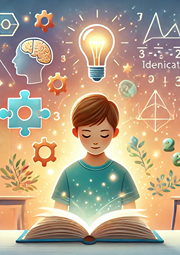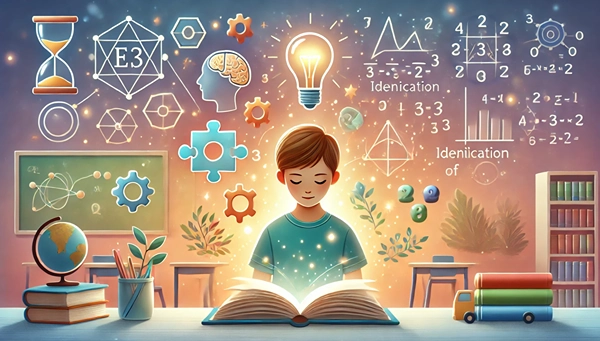How to Identify High Intelligence in Children
Children with high intellectual potential, often referred to as gifted or high-IQ individuals, display unique characteristics that set them apart. Recognizing these early traits can help parents and educators provide the right support for their cognitive and emotional development.
Their advanced abilities often come hand-in-hand with distinct emotional and social needs, making early identification important for their well-being and growth. Here’s how to identify high intelligence in children.
1. Observe Advanced Learning Abilities
Gifted children often demonstrate advanced learning abilities at an early age. They might:
- Learn to read, write, or solve problems earlier than their peers.
- Show an exceptional ability to grasp complex concepts quickly.
- Exhibit a deep understanding of subjects well beyond their age level.
For example, they may solve puzzles intended for much older children or ask questions that reveal advanced critical thinking.
2. Notice Intense Curiosity
A key trait of high intelligence is an insatiable curiosity about the world. Highly intelligent children often:
- Ask endless “why” questions, diving deep into topics of interest.
- Explore subjects independently, often seeking knowledge from books or online resources.
- Show a passion for specific areas, such as dinosaurs, space, or history, at an unusually young age.
This eagerness to learn reflects a thirst for understanding that goes beyond average curiosity.
3. Look for Exceptional Memory Skills
Children with high IQs typically have remarkable memory retention. This ability allows them to:
- Recall details of past experiences vividly.
- Retain facts, figures, and patterns after minimal exposure.
- Apply creative solutions to problems across different situations.
For example, they might remember obscure facts from books they read months ago.
4. Assess Emotional Sensitivity
High intelligence is often paired with heightened emotional sensitivity. Gifted children might:
- Be more empathetic toward others’ feelings.
- Show a strong sense of justice and fairness.
- Experience intense emotions, whether joy, frustration, or sadness.
This sensitivity can make them more attuned to their environment but also more vulnerable to stress.
5. Identify Strong Problem-Solving Skills
Gifted children are natural problem solvers. They enjoy:
- Tackling challenges that require creativity and logic.
- Coming up with innovative solutions to real-world problems.
- Thinking critically, often questioning rules or traditional methods.
This analytical mindset often sets them apart in group settings or classrooms.
6. Watch for a Preference for Solitude or Older Company
Highly intelligent children might prefer solitude or the company of older peers. They often:
- Enjoy engaging in independent activities like reading or building.
- Seek out conversations with adults or older children who share their interests.
- Struggle to connect with peers of the same age due to differing intellectual or emotional maturity.
This doesn’t mean they lack social skills; they simply thrive in environments that match their intellectual level.
7. Test Their IQ
While observation provides valuable insights, a formal IQ test can confirm high intelligence. Professional assessments conducted by psychologists can measure cognitive abilities and identify giftedness. These tests often evaluate:
- Logical reasoning.
- Verbal comprehension.
- Mathematical and spatial skills.
Testing can also help identify areas where additional support might be needed, such as emotional regulation or social adaptation.
Why Early Identification Matters
Recognizing high potential in children early ensures they receive the stimulation and challenges they need to thrive. Without appropriate support, gifted children might become bored, underachieve, or feel isolated. Parents and educators can nurture their growth by:
- Providing advanced learning opportunities.
- Encouraging creativity and exploration.
- Offering emotional guidance to manage their heightened sensitivities.
Curious to understand your child’s intellectual potential? Consider using tools like IQ Tester to gain insights and take the first step in fostering their talents.
Identifying giftedness is not about labeling a child but rather about unlocking their potential and ensuring they flourish in all aspects of life.







